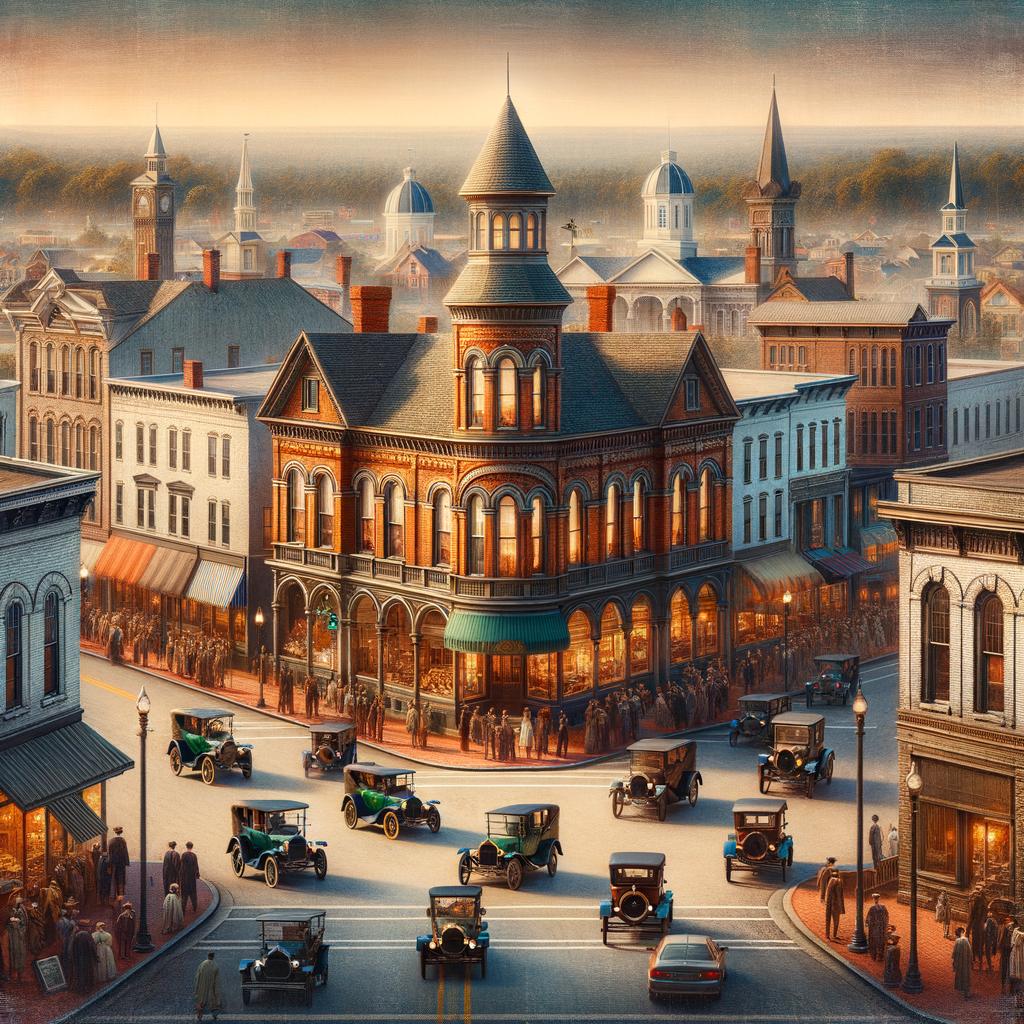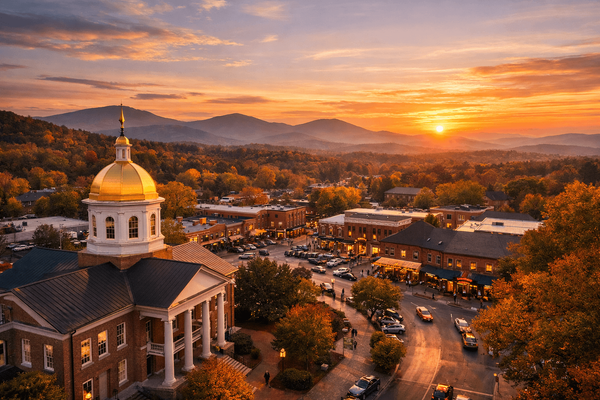The History of Gainesville, GA: From Founding to Now

The History of Gainesville, GA: From Its Founding to Today
Nestled in the foothills of the Blue Ridge Mountains, Gainesville, Georgia, is a city with a storied past that reflects the broader history of the American South. Known as the "Poultry Capital of the World," Gainesville has grown from its modest beginnings into a thriving community celebrated for its cultural diversity and economic vitality. In this article, we delve into the rich history of Gainesville, tracing its development from its founding days to its current status as an economic powerhouse in the region.
Early Beginnings and Founding of Gainesville
Gainesville's history dates to the early 19th century, rooted in the spirit of exploration and settlement that characterized the American frontier. Founded in 1821 and incorporated as a city in 1823, Gainesville was named after General Edmund P. Gaines, a well-known military leader who served during the War of 1812. The region's fertile land and proximity to key trade routes attracted settlers, establishing Gainesville as a focal point for commerce and agriculture.
The fledgling community quickly developed around the essential industries of farming and trade. Settlers took advantage of the nearby rivers and fertile farmland, laying a foundation of agriculture that continues to influence Gainesville's economy. The establishment of a rail line in the 1870s further strengthened the city's position as a trading hub, linking Gainesville to pivotal markets in the Southeast.
Gainesville in the 19th Century: Growth and Change
Throughout the 19th century, Gainesville's growth mirrored the dynamic changes sweeping across the United States. The city navigated the tumultuous period of the Civil War, emerging resilient and poised for renewed expansion during the Reconstruction era. By the late 1800s, the textile industry had become a significant component of Gainesville's economic landscape, complementing the traditional agricultural base.
Educational and cultural institutions also began to take root in this period. The establishment of public schools and a library in the late 1800s signaled an investment in the city's future intellectual and cultural life. These developments indicated Gainesville's transformation from a frontier town to a city increasingly integrated into the national fabric.
The 20th Century: Challenges and Triumphs
The 20th century brought both challenges and triumphs for Gainesville. The city was hit hard by the devastating tornado of 1936, one of the most catastrophic natural disasters to strike, leaving significant portions of the city in ruins and claiming numerous lives. However, this tragedy led to a renewed spirit of community and resilience. The rebuilding efforts that followed marked a period of modernization and development.
In subsequent decades, Gainesville experienced remarkable economic and demographic growth. The poultry industry emerged as a key economic driver, earning Gainesville its nickname as the "Poultry Capital of the World." Businesses and infrastructure expanded, and Gainesville became known for its vibrant community life, bolstered by a growing diversity of residents.
Cultural and Economic Evolution into the 21st Century
As Gainesville moved into the 21st century, it continued its trajectory of growth and diversification. The city's economy expanded beyond agriculture, with healthcare, education, and manufacturing sectors playing significant roles. The burgeoning University of North Georgia campus in Gainesville also contributed to the city's cultural and economic dynamism.
Gainesville has embraced cultural diversity, fostering a community that thrives on unique contributions from residents with varied backgrounds and experiences. Festivals, museums, and cultural events celebrate the city's rich tapestry of identities, making Gainesville a vibrant place to live and visit.
Preserving History and Looking to the Future
Today, Gainesville balances respect for its historical roots with enthusiasm for the future. The preservation of historical sites and the promotion of local history remain central to the city's identity. Meanwhile, the economic and cultural vitality continues to draw new residents and visitors, ensuring that Gainesville's legacy remains bright.
With its vibrant past and promising future, Gainesville continues to embody the pioneering spirit and resilience that have defined its history for nearly two centuries.
FAQs
What is the origin of Gainesville's name?
Gainesville was named after General Edmund P. Gaines, a prominent military figure in the early 19th century, known for his service in the War of 1812 and involvement in the American frontier.
Why is Gainesville known as the "Poultry Capital of the World"?
Gainesville earned this nickname due to its extensive poultry farming and processing industry, which became a major economic driver for the city in the 20th century.
How did the 1936 tornado impact Gainesville?
The 1936 tornado was a catastrophic event that destroyed much of Gainesville. The city's response with community resilience and rebuilding paved the way for modernization and growth.
What role did the railway play in Gainesville's development?
The railway, established in the 1870s, connected Gainesville to larger markets, bolstering its trade capacity and facilitating economic growth during the late 19th century.
How has Gainesville preserved its history?
Gainesville actively preserves its history through the conservation of historical sites and cultural events that celebrate its rich past, ensuring that future generations understand and appreciate the city's heritage.
Categories
- All Blogs (597)
- Achasta Golf Community (77)
- Cleveland, GA (43)
- Dacula, GA (43)
- Dahlonega GA (119)
- Dawsonville, GA (44)
- Gainesville, GA (46)
- Gold Peach Realty (5)
- Helen, GA (44)
- Home Buying Tips (17)
- Home Décor And Interior Design (7)
- Home Improvement Tips (15)
- Home Selling Tips (20)
- Homes For Sale (51)
- Lake Lanier, GA (70)
- Local Events (13)
- Local Guides (17)
- Mortgage And Finance Tips (23)
- North Georgia (11)
Recent Posts










GET MORE INFORMATION

